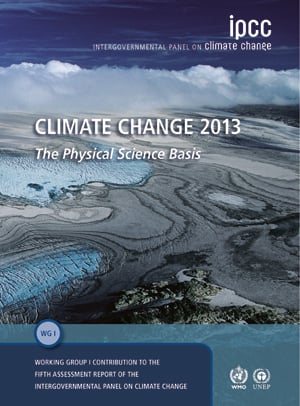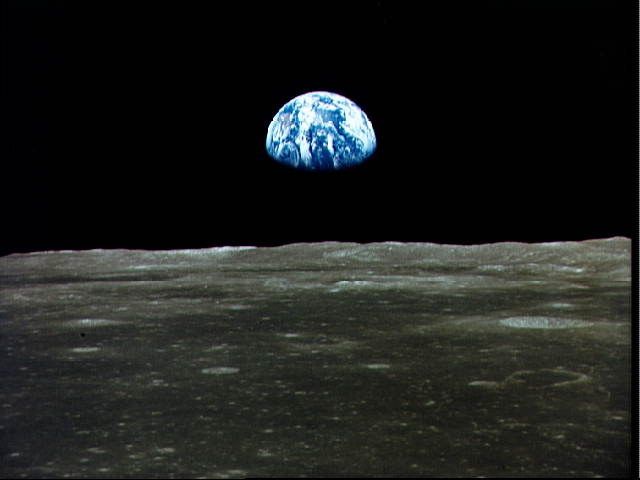Name It and claim It
George Gerbner said the public was created by the newspapers: an audience that previously didn't exist as a group, but had diverse traditions, stories, and beliefs.
The mass media generated the public through the phenomenon of "news," along with a set of messages and stories.
In cultivation theory, Gerbner instructs us that,
The primary proposition of cultivation theory states that the more time people spend "living" in the television world, the more likely they are to believe social reality portrayed on television. Cultivation leaves people with a misperception of what is true in our world.
The rise of the "public" is the story of the descent of civilization. Having evolved through time to the point of nominal self-government, the public consciousness was usurped at the time of the industrial revolution by capitalist forces, who brought media under their control through advertising.
This gave the mass media owners--the corporations--vast power in shaping the public consciousness. For the first time in history, the stories of civilization were told, not by the parents, the school, the church or the community, but by the media conglomerates. These had "nothing to tell, but everything to sell."
This effectively places a child born into our society and culture into a position of identification with a consciousness masterminded by a tiny group of very powerful people in a handful of institutions: media conglomerates, multinational corporations, the Pentagon, and, to a lesser extent, the church and the government along with other institutions that have some ability--through media control--to shape the public consciousness.
Unfortunately, these institutions have an interest in manipulating the public into serving the institutions' needs, not the needs of the public.
The Crisis in Society and Public Consciousness
Between the Great Depression and the Great Recession of 2008, the public advanced greatly in terms of material wealth. The institutions of power, however, also enhanced their grip on the power over the consciousness of the public.
- By the time of the economic crash of 2008, however, it had become clear that the status quo, financially, environmentally, militarily, medically, agriculturally, and especially in terms of media control, was driving the human race off course from shared health and prosperity. Instead, the systems that brought about the 2008 collapse were aggressively propped up by the entrenched powers;
- Through revelations about banking fraud we learned how the regulating bodies in government had been captured by the Wall Street operators.
- In spite of massive bank bailouts we continued to see record home foreclosures and no meaningful restructuring of the home mortgage market.
- We saw through the failure of the Iraq and Afghanistan wars how the public had been manipulated through our mass media into believing in the necessity for these expensive misadventures that benefitted a few but destroyed the lives and livelihoods of very many.
- We learned through whistleblowers in the Justice Department, the CIA, the NSA and the Pentagon how the colossal National Security Apparatus set up ostensibly to protect us from terrorism, was instead infringing more and more on our civil rights while greatly enriching a few wealthy special interests, and, at the same time, taking funds that were badly needed for health, education, and environmental protection.
- We saw how, in spite of a clear mandate to institute a national health plan that would provide every citizen with basic medical care, which could easily and simply have been done by simply expanding the Medicare Program, insurance and pharmaceutical companies diverted the process and prevented meaningful, comprehensive reforms.
- We saw billionaire-funded astroturf political groups support candidates who began rolling back the rights and Constitutionally protected freedoms of the common people.
- We saw energy and food corporate behemoths like BP and Monsanto exploit the country and the world's natural resources for obscene profits at the world's expense, all the while endangering our fragile environment.
In every one of these cases we saw the complicity of government: the legislature, the executive, and especially the courts, acting unequivocally on behalf of the wealthy special interests -- multinational corporations, behind the influence of the mass media they control -- and against the best interests of the people of the United States and of the world.
Occupy Wall Street
In the fall of 2011 this disillusion boiled over into the Occupy Wall Street events. The anti-social policies of government, industry and the military could no longer be concealed from public consciousness by a slick veneer of media razzle dazzle.
For a moment nuclei of genuine public discourse coalesced in protest of the false narrative that had brought the world and the nation to ruin. Dialogue and democracy were suddenly rediscovered by discrete groups of mostly young and disaffected Americans drawing together to create a new narrative based on American ideals of freedom, democracy and self-determination.
On September 17, 2011, a group of protesters demonstrating in lower Manhattan against the bank bailouts from the collapse of the housing markets and the evaporation of the institutions holding derivatives and collateral default swaps, and against economic inequality in the United States, were driven away from Chase Plaza by the police. The protesters then gathered in Zuccotti Park in lower Manhattan. Through media coverage and internet connections, a movement soon spread similar gatherings to dozens--if not hundreds--of other towns and cities in the U.S.
Occupiers took up residence in prominent public spaces and held daily business meetings. The meetings operated on a consensus model in which strict democratic procedures were observed in all self-governing decisions by the occupiers. Simultaneously, the occupiers conducted regular public demonstrations demanding redress of political grievances, including solutions to the growing economic and political inequality in America. The protests focused on the injustice of housing foreclosures by banks and mortgage lenders that had lost trillions of dollars of investors' capital and that had been saved from insolvency by government bailouts. The protesters demanded the banks face criminal prosecution and penalties.
The occupy culture of inclusive democratic decision making and sharing of possessions and resources for the common welfare of all the occupiers was supported by folkloristic expression in music, art, and other performances. The demonstrations and activities of many, if not most, of the occupations were "streamed live" over the internet, and the movement's activities gained wide exposure from these broadcasts. Additionally, occupations utilized the internet for dynamic planning and information sharing to expand their message of democracy and economic justice. The inclusivity of the occupy movement was sustained in this way, and drew great recognition and support from the wider general population.
Though sustained by a communal sharing of resources, and enjoying significant popular support, the strident and often disruptive political activity of the occupiers led public officials to crack down on their encampments and protests. In Oakland, occupiers organized a Longshoreman strike that shut down the Port. In Atlanta, student occupiers instituted a moratorium on repayment of student loans. New York, Los Angeles and other cities experienced almost daily mass protests that disrupted a wide spectrum of civil, and especially economic, life.
Finally, the FBI counterterrorism unit conducted secret coordinating conferences to plan nationwide dispersal of the occupations. The occupy movement lost momentum with the onset of Autumn. By January of 2012 most occupy sites had been cleared of protesters and many occupiers had been jailed. Police began using coordinated preemptive tactics against the mass economic and political activity. With a few notable exceptions, the movement all but disintegrated by the winter of 2012. It therefore had little or no direct bearing upon the Presidential election of that year.
We Shall Overcome
With the evaporation of the occupy movement, mainstream politics again monopolized the public's consciousness through the election of 2012. In spite of massive infusions of cash for campaign television advertisements on behalf of the challenger, Mitt Romney, incumbent Barack Obama won a second term through superior organizing and mobilization of ordinary voters.
However, after the election, Congress remained gridlocked due to Obama's failure or unwillingness to force the Republicans to back his economic, environmental and health care plans. Furthermore, the advent of drone strikes, a massive U.S. military buildup in the far East, the growth of extreme energy extraction in Canada and the United States, and the defeat of GMO labeling requirements added more frustration to the public's displeasure over the Administration's failure to meaningfully reform the nation's banking and finance system and implement meaningful change in the structure of Americas health insurance.
By the end of the summer of 2013, Americans had become engaged in underground politics. Widespread disaffection with the major parties left "Independent" as the largest group of registered voters. Instead of rallying around the government or their parties, Americans practice issue politics--organizing locally to effect change from the bottom-up by working on issues from gun control to health care, immigration to environmental protection.
The monopolization of mass media and political parties by billionaires and multi-national corporations can no longer be concealed from the masses of the population, who want meaningful, progressive change. The people and the corporations are engaged in battles over food production and marketing, education, energy, home financing and the environment. The public is finding common ground over issues that reach beyond party lines, and is building powerful grassroots coalitions around popular issues to subvert the domination of money and special interests.




